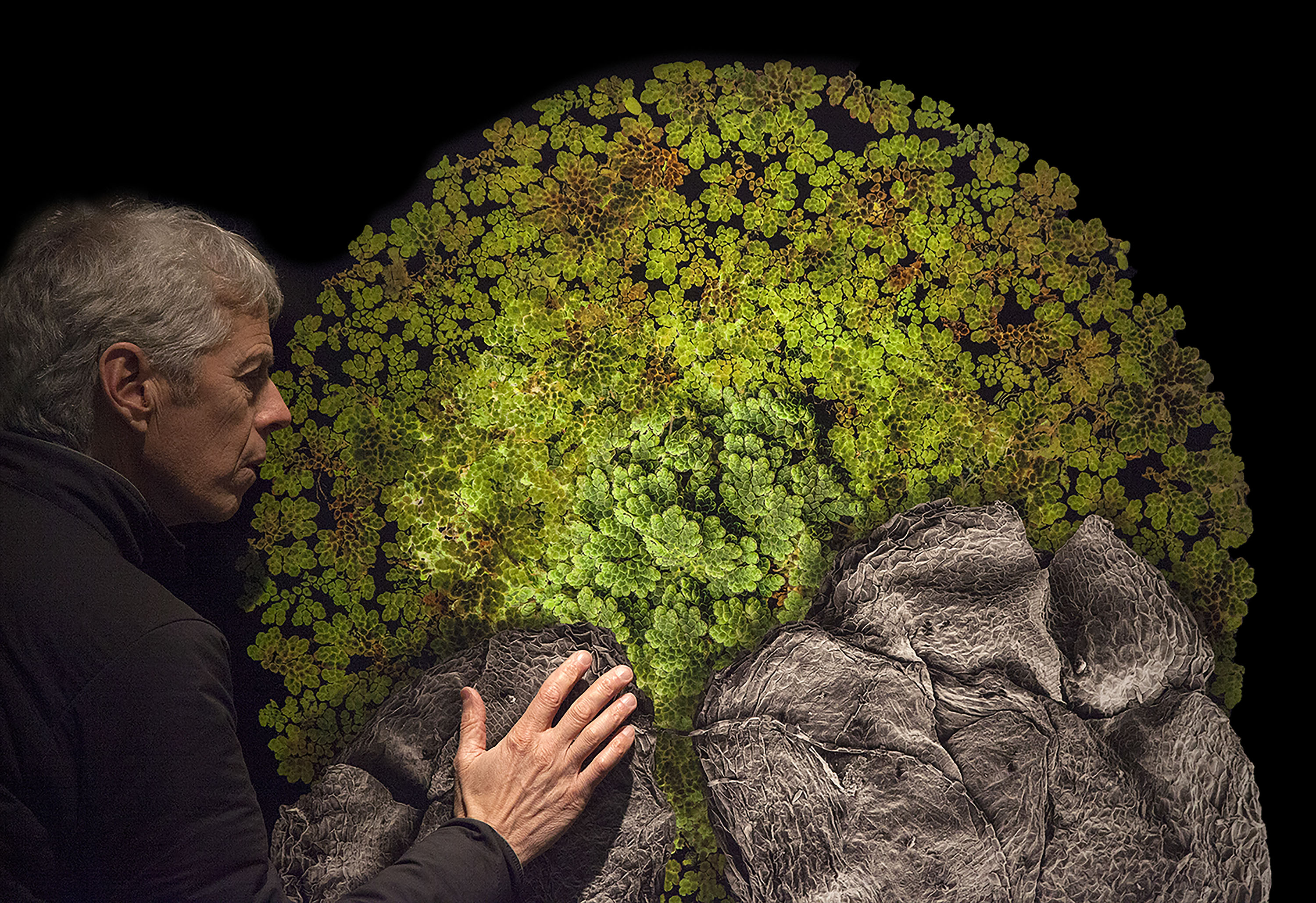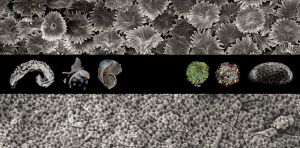
Robert Dash‘s new book, Food Planet Future: The Art of Turning Food and Climate Perils into Possibilities, features photo collages of foods from all over the planet. Combining images from a scanning electron microscope with traditional color photography, Dash creates fascinating pictures that reveal hidden patterns and extraordinary beauty that we can’t—or don’t take the time to—see. The photos are accompanied by stories that highlight both deep problems and hopeful developments in our food system. But Dash’s goal is not just to educate us about the issues surrounding food we eat. He aims to inspire awe and wonder, to help us slow down and look closely at the world around us, to open our hearts and find a more connected way of living and eating.
Robert Dash is an award-winning photographer and science educator. His photographs have been featured in National Geographic and Time magazine, and have been exhibited in galleries and museums internationally.

TIMELINE
2’56 a photography book on regenerative agriculture
3’41 studied natural history in college and as an educator
4’20 the deep connection between conservation and agriculture
5’20 looking at the macro and the micro as a photographer and science person both
6’03 the scanning electron microscope images are black and white
7’28 making a book on food around the world without having a big carbon footprint himself
8’35 photographs as fact and metaphor both
9’18 asparagus as both a visually fascinating object, and as a vegetable with a problematic footprint
11’19 the decline of seasonal eating
11’53 the removal of a dam and its effect on salmon
14’10 the importance of leaving fish in the sea for wildlife, of eating with the whole planet in mind
16’00 methane-loving bacteria that produces a product high in protein and nutrition
16’47 kelp farming and the restoration of kelp forests
19’04 buckwheat as a soil-friendly food
20’36 biochar and rock dust
22’59 biochar as a home for microbes
24’37 balancing stories of destruction and regeneration
26’53 the visual beauty of the potato starch granules
28’32 getting access to a scanning electron microscope
29’18 an electron microscope is like hiking over the surface of a leaf
29’48 fun compositions–the blueberry as the astronaut “earthrise” photo
30’59 the importance of smallholder farms around the world — about 30% of all food production comes from farms 5 acres or less
33’11 potato guardians in Peru and the value of their stewardship
34’13 the importance of global cooling
37’28 leave no barren ground
38’24 cultivating our own attention to the small things — it’s like cultivating beauty and love for the natural world
40’14 the awe and wonder is the attitude we need to confront climate change, rather than doom. Our curiosity and dedication to learning is our best chance
40’46 for him scientific facts are poetry
41’57 science is also about living in the mystery
42’46 quotation from Adrienne Rich



Subscribe:
Apple Podcasts
Spotify